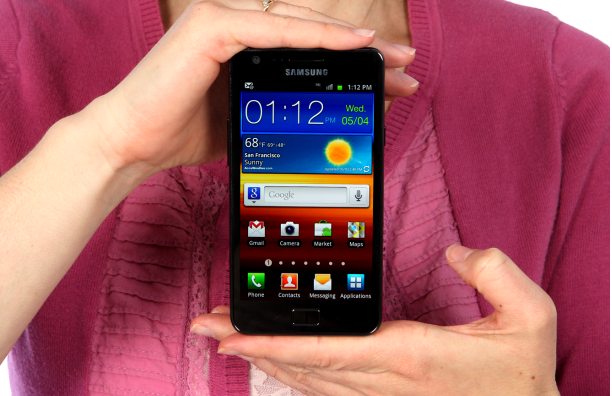Why Apple should abandon its 'thermonuclear' war against Android

Apple's chief executive Tim Cook plays by a similar but different rule book to that of the late Steve Jobs.
The before and after of Steve Jobs' death in the secretive and complex Apple tapestry could be comparable to the Old Testament and New Testament of the Bible. That's not to say that that Steve Jobs plagued Apple with rhetoric, hailing down of "tsunamis of nunchucks" or "valleys of haematoma" for that matter, despite his occasional torrent of verbal abuse.
It could be that the patent war that Jobs began could be signed to surrender by his successor.
Reports emerged this morning of top Apple executives and Samsung executives meeting in a neutral, demilitarised zone, in a bid to settle once and for all a global patent dispute that has spread to over four continents and dozens of cases, reports Bloomberg.

Barrett writes: "Cook does not seem to share his predecessor’s passion about laying all foes to waste. Cook appears to view litigation as a necessary evil, not a vehicle of cosmic revenge."
It comes after Apple and Samsung engaged in a bitter war over patents, initiated by Cupertino. The revelations in Walter Isaccson's biography followed where Jobs described how he wanted to "destroy Android, because it's a stolen product", with him willing to wage "thermonuclear war" on it.
Cook went to China, where Jobs refused. Cook ordered Apple to give a dividend to investors, where Jobs distanced himself from such a move.
Jobs' reign was just a different style of leadership to that of mild-mannered Cook.
Throw Jobs into a room with an Android developer with a gun and a bullet, and you'll hear no gunshot, but open the door and you'll find still a blood-smeared wall. Cook, on the other hand, may sit the developer down and hold them close into the bosom of the Apple family.
But while Apple and Samsung continue to fight, with some winning in jurisdictions over others, while vice versa elsewhere, Barrett concludes that Apple's case is rocky at best, and on the verge of exhausted.
"In the short run, the tech giants could save themselves considerable legal fees and distraction if they were to lock their lawyers in a hallway of conference rooms and refuse to release them until they had crafted a series of comprehensive cross-licensing pacts," Barrett says.
One of the key complaints we've seen throughout the legal tit-for-tat scrapping is that Samsung "copied every aspect" of the "distinctive and minimalist trade dress" of the iPhone 3GS, according to Apple spokesperson Steve Dowling, speaking to Barrett.
As described by Business Insider, "Every smartphone looks like that now. And a lot of phones looked like that before the iPhone."
ZDNet's Jason Perlow said to me earlier: "The North Korea vs. South Korea situation will resolve itself quicker."
He may not be wrong, but he certainly may not be right.
Apple will eventually have to bite the bullet and accept that it makes business sense to admit defeat, struggle with a slight dip in their extremely high share price for a couple of days --- a week, maximum --- and face some short-lived embarrassment.
Though Jobs has passed, Cook could still have the words Jobs said in his biography rattling around his head at night: "I will spend my last dying breath if I need to, and I will spend every penny of Apple's $40 billion in the bank, to right this wrong."
Except, that is, it's $100 billion cash in the bank, and Apple could still lose every penny if it continues to fight an unwinnable war with its closest hardware rival.
Image source: Josh Miller/CNET.
Related: